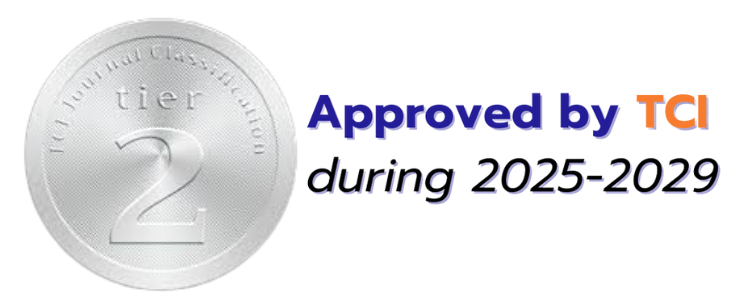The การพัฒนาผลสัมฤทธิ์ทางการเรียนวิทยาศาสตร์ของนักเรียน ชั้นมัธยมศึกษาปีที่ 1 ด้วยกิจกรรมการเรียนรู้โดยใช้สมองเป็นฐาน เรื่อง การถ่ายโอนความร้อน
##plugins.pubIds.doi.readerDisplayName##:
https://doi.org/10.56825/jehds.2025.925942关键词:
กิจกรรมการเรียนรู้โดยใช้สมองเป็นฐาน, ผลสัมฤทธิ์ทางการเรียน, การถ่ายโอนความร้อน摘要
การวิจัยครั้งนี้มีวัตถุประสงค์เพื่อ 1) เพื่อพัฒนากิจกรรมการเรียนรู้โดยใช้สมองเป็นฐานสำหรับนักเรียนระดับชั้นมัธยมศึกษาปีที่ 1 เรื่อง การถ่ายโอนความร้อน 2) เพื่อเปรียบเทียบความรู้วิทยาศาสตร์ของนักเรียนก่อนและหลังเรียน 3) เพื่อเปรียบเทียบทักษะกระบวนการทางวิทยาศาสตร์ขั้นพื้นฐานของนักเรียนก่อนและหลังเรียน และ 4) เพื่อศึกษาเจตคติของนักเรียนต่อวิทยาศาสตร์ กลุ่มตัวอย่างได้มาโดยวิธีการสุ่มแบบกลุ่ม เป็นนักเรียนชั้นมัธยมศึกษาปีที่ 1 จำนวน 1 ห้องเรียน จำนวน 34 คน จากโรงเรียนขนาดใหญ่แห่งหนึ่งในจังหวัดนครปฐม เครื่องมือที่ใช้ในการวิจัยประกอบด้วย 1) กิจกรรมการเรียนรู้โดยใช้สมองเป็นฐานเรื่องการถ่ายโอนความร้อน จำนวน 3 แผน รวมเวลาทั้งสิ้น 6 ชั่วโมง 2) แบบวัดความรู้วิทยาศาสตร์ ซึ่งเป็นแบบทดสอบปรนัย 4 ตัวเลือก จำนวน 20 ข้อ 3) แบบวัดทักษะกระบวนการทางวิทยาศาสตร์ มีลักษณะเป็นแบบทดสอบปรนัย 4 ตัวเลือก จำนวน 20 ข้อ และ 4) แบบวัดเจตคติต่อวิชาวิทยาศาสตร์ เป็นแบบมาตราส่วนประมาณค่า 5 ระดับ จำนวน 30 ข้อ เก็บรวมรวมข้อมูลในภาคเรียนที่ 2 ปีการศึกษา 2566 วิเคราะห์ข้อมูลโดยใช้ค่าเฉลี่ย ร้อยละ ส่วนเบี่ยงเบนมาตรฐาน และการทดสอบสมมติฐานแบบ dependent sample t-test ผลการวิจัยพบว่านักเรียนมีความรู้วิทยาศาสตร์หลังเรียนสูงกว่าก่อนเรียนอย่างมีนัยสำคัญทางสถิติที่ระดับ .01 ความสามารถด้านทักษะกระบวนการทางวิทยาศาสตร์ขั้นพื้นฐานหลังเรียนสูงกว่าก่อนเรียนอย่างมีนัยสำคัญทางสถิติที่ระดับ .01 เจตคติต่อวิทยาศาสตร์ของนักเรียนอยู่ในระดับเห็นด้วยอย่างยิ่ง
##plugins.generic.usageStats.downloads##
参考
Caine, R. N., & Caine, G. (2004). Brain-based learning. Funderstanding.
http://www.funderstanding.com/brain_based_learning.cfm
Chaiyamatchim, S. (2020). Development of science learning activities based on the concept of using the
brain as a base in conjunction with inquiry-based teaching (5Es) on water for life and air around us. Science learning materials group for Grade 3 students (Master’s dissertation, Sakonnakhon Rajabhat University). [translated]
Chuprabhawan, J. (2005). Who are thinking their Thai children is stupid. Amarin Printing Publishing House. [translated]
Inci, N., & Erien, H. (2010). The effect of brain-based learning on academic success,
attitude and retrieval of information in science and technology classes . http://www.esera.org/media/ebook/strand3/ebook-esera2011—NC—03.pdf
Institutions of Learning. (2005). Brain-based learning curriculum primary education. Institutions of Learning. [translated]
Lertvicha, P. (2007). How the brain learns. Sala Daeng. [translated]
Lertvicha, P., & Jaruphakorn, A. (2007). Design the learning process by understanding the brain.
Darnsutha Press. [translated]
Mala, S., Thongnoi, C., & Saeheng, P. (2017). Comparison of academic achievement, process skills,
science, and attitude toward the study of science subjects of students in Grade 6 using structured project-based learning with problem-based learning. Journal of Educational Measurement Mahasarakham University, 23(Suppl.), 280–290. [Translated]
Ministry of Education. (2009). Basic Education Core Curriculum 2008. Office of the Basic Education
Commission. Agricultural Cooperative Federation Printing House of Thailand. [translated]
Moonkham, S. (2006). Writing a thinking-oriented learning management lesson. Chulalongkorn University. [translated]
Office of Knowledge Management and Development. (2015). Science learning management:
Guidelines for learning management based on BBL principles in high school (9–12 years old). Office of Knowledge Management and Development. [translated]
Sangwandee, S. (2013). Development of a brain-based science teaching and learning model for Grade
on academic achievement, creativity and emotional intelligence (Master’s dissertation, Mahasarakham University). [translated]
Taweerat, P. (2000). Research methods in behavioral science and social sciences (8th ed.). Educational and Psychological Test Bureau, Srinakharinwirot University. [translated]
Udomratti, V., & Thanasettakorn, P. (2018). Brain skills development guide EF executive functions in
children aged 7–12 years. Rakluke Group. [translated]
##submission.downloads##
已出版
期
栏目
##submission.license##
##submission.copyrightStatement##
##submission.license.cc.by-nc-nd4.footer##






